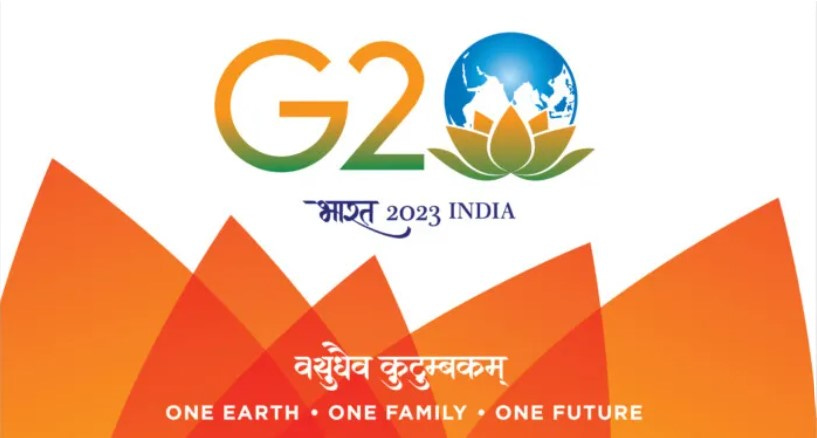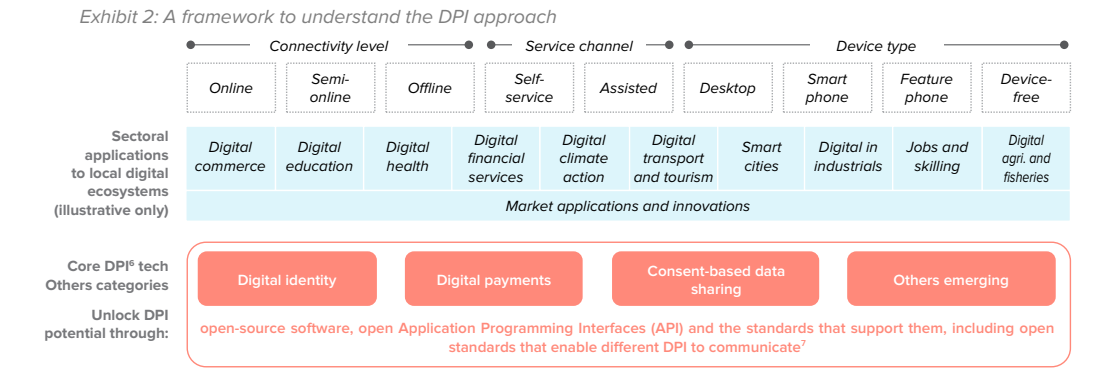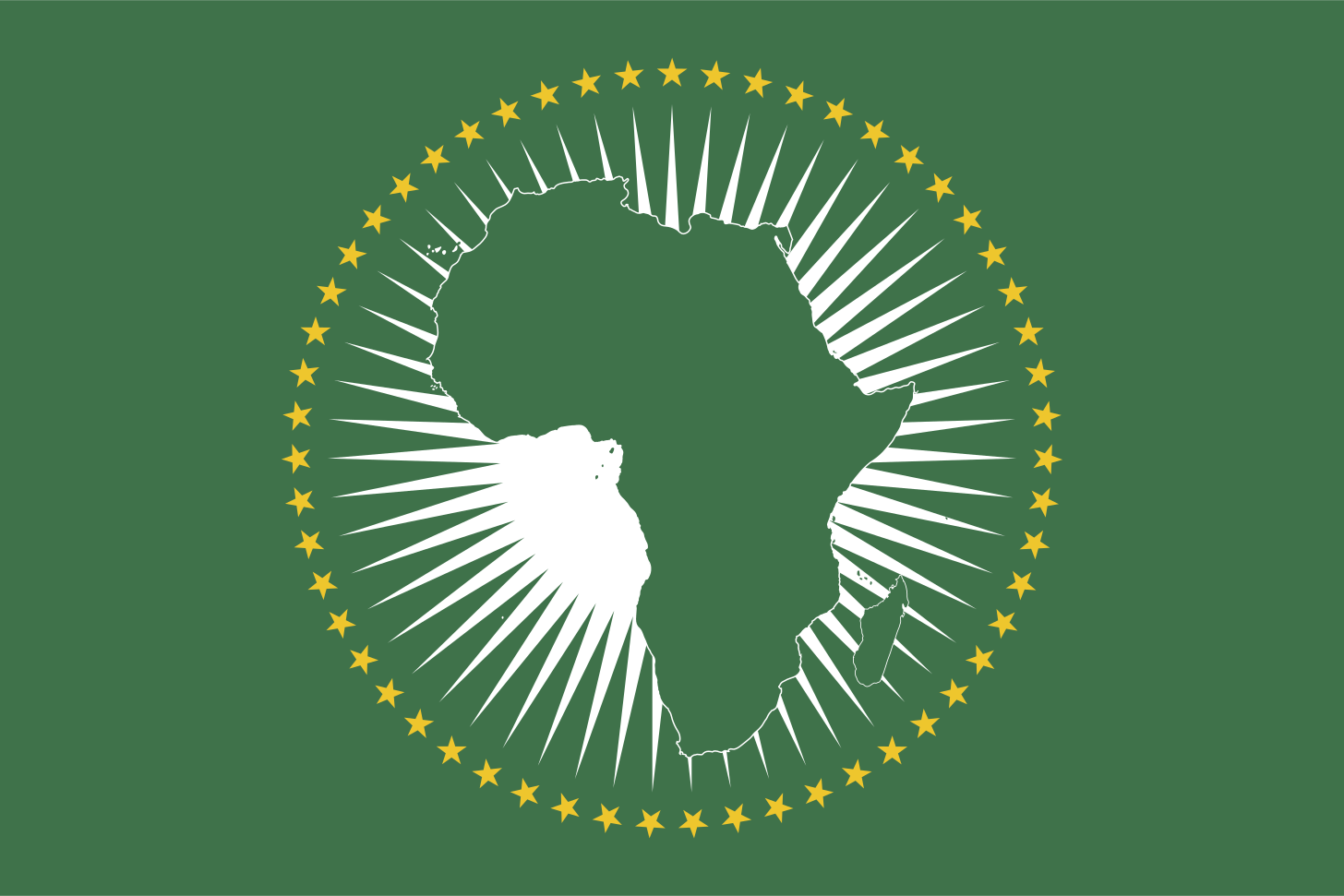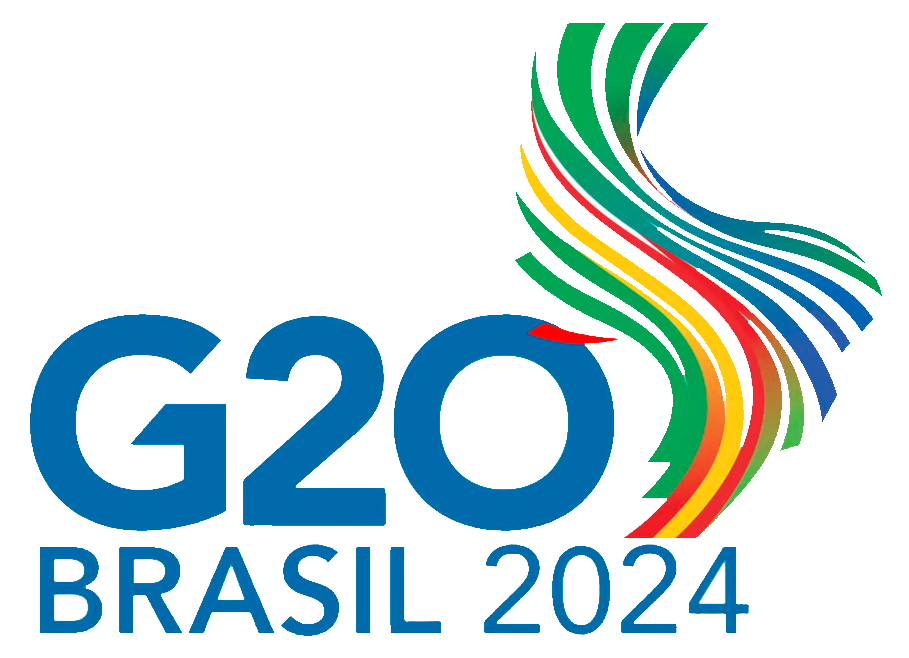Digital Public Infrastructure for One Earth, One Family and One Future
G20 leaders meeting uncovers new technocratic concepts
At the G20 leaders' meeting in India, under the motto “One Earth, One Family, One Future”, the new concept Digital Public Infrastructure (DPI) and the NGO One Future Alliance were launched. These initiatives intend to increase the interconnectedness of the data-based systems with the aim of meeting the Sustainable Development Goals – The fusion of the United Nation’s Agenda 2030 and World Economic Forum's Fourth Industrial Revolution. This constitutes the foundation for the technetronic society for social and planetary engineering that was envisioned by Zbigniew Brzezinski in his 1970 book Between two Ages. Welcome to the New International Economic Order!
Everything the G20 does is based on Agenda 2030 and the Sustainable Development Goals. The leaders of the world's 19 largest economies commit to "accelerate the full and effective implementation of the 2030 Agenda for Sustainable Development" and to advocate "lifestyles for Sustainable Development". The latter includes the introduction of a social credit system that rewards "correct" sustainable behaviour. As expressed in the G20 High Level Principles on Lifestyles for Sustainable Development:
Leverage data to support and enable last mile behaviour change towards adopting and incentivising sustainable lifestyles and consumer choices.
In order to fulfill the SDGs and tackle other global challenges, artificial intelligence will also be used in a "responsible" way and, for example, be used to detect potential risks.
To unlock the full potential of AI, equitably share its benefits and mitigate risks, we will work together to promote international cooperation and further discussions on international governance for AI.
The DPI concept includes, among other things, digital identity, digital payment systems and data sharing mechanisms.
These are key technologies in the digital economy where all transactions will be monitored. This is also a part of the G20 commitment to build an international tax system. But also for preventing money laundering and financing of terrorism as well as to facilitate vaccine delivery and climate action. They also form a basis for Central Bank Digital Currency (CBDC), which is gradually being tested in several countries. over the world. The concept is mentioned in the Leaders' Communiqué.
We welcome discussions on the potential macro-financial implications arising from the introduction and adoption of Central Bank Digital Currencies (CBDCs), notably on cross-border payments as well as on the international monetary and financial system.
At the same time, developing countries are “given a voice” in global decision-making. Notably, the African Union (AU) has now become an official member of the G20 (which should mean a name change to the G21).
In practice, however, this means that they are incorporated into the "One Family" and will obey the dictates of the “overlords” and implement collective action to reduce carbon dioxide emissions to net zero.
Officially, the BRICS member and this year’s G20 host nation India is the originator of the Digital Public Infrastructure (note that the G20 consists of both the G7 group and the BRICS countries). However, they have had assistance from the United Nations Development Program (UNDP) and The World Bank in developing the concept (which was unanimously approved at the Digitalisation Ministers' meeting in mid-August this year).
Participating “knowledge partners” included the Bill & Melinda Gates Foundation, Omidyar Network India, Center for Digital Public Infrastructure (CDPI), India's Aapti Institute, as well as the consulting firms and WEF members Dalberg and Boston Consulting Group.
It is clear that WEF has an agenda-setting role as Bill Gates (WEF Global Leader of Tomorrow 1993) and eBay founder Pierre Omidyar(WEF GLT 1999) also have close connections to the organization.
The G20 interest group B20 (Business20), which gathers business interests, is totally dominated by the World Economic Forumand lists powerful international advisers such as Börge Brende (President of WEF), Michael Bloomberg (Bloomberg L.P.), Satya Nadella(Microsoft), Lynn Forester de Rothschild(E.L. Rothschild, WEF GLT 1995) and Marcus Wallenberg (SEB, WEF GLT 1994). This is the world's financial elite with tight links to Davos, the Bilderberg Group and the Trilateral Commission. Their communiqué is over 100 pages long and is illustrated with images linked to the fusion of humans with technology. They belong to the bizarre futuristic techno-cult that ultimately runs the show.
Not entirely unsurprisingly, their policy recommendations consist of rapidly rolling out Digital Public Infrastructure to implement the digital transformation. This illustrates the great influence that these actors have in comparison with other interest groups. Us ordinary mortals have no say in this.
In connection with the meeting with the digitisation ministers, UNDP also released the reports Accelerating the SDGs through Digital Public Infrastructure and The DPI Approach: A Playbook, where the concept is linked to the sustainability agenda. The first report shows clear parallels to WEF and PwC's futuristic report Unlocking Technology for the Global Goals from January 2020, and aims to provide guidance for governments, NGOs, multilateral organisations and the private sector.
The Center for Digital Public Infrastructureis in turn supported by Co-Develop. An initiative created in the wake of the pandemic in August 2021 by the Rockefeller Foundation, the Norwegian Ministry of Foreign Affairs and the UN-led Digital Public Goods Alliance to help countries use DPI for emergency relief and long-term resilience. Under the leadership of the Rockefeller Foundation, the report Co-Develop Digital Public Infrastructure for an Equitable Recoverywas also released during the meeting.
The Rockefeller and Gates foundations are omnipresent and the whole agenda largely follows the Lock Step scenario from the Rockefeller Foundation's Scenarios for the Future of Technology and International Development from 2010.
Both foundations were well prepared and unlocked their technocratic concepts and tech solutions on a global scale while the world was in lockdown and in a state of shock.
This is part of the global coup d'état which ultimately manifests itself in the UN's Our Common Agenda and the tight-knit alliance that has been formed between global mega-corporations, financial institutions, and the UN system. This is what Paul Raskin of The Great Transition Initiative and Club of Romerefers to as the “New Earth Order”.
One Future Alliance
To create synergies in implementing DPI, the G20 also launched the One Future Alliance. A voluntary initiative that will bring together governments, the private sector, academia, civil society organisations and donor agencies. We can assume which actors that will be ready. According to the G20 High Level Principles on Lifestyles for Sustainable Development, One Future means:
Integrated approach for achieving our shared goals on development, environment and climate with human beings at the centre of our actions, leaving no one behind – One Future.
India itself has taken the lead in rapidly introducing the new technology and the introduction of a “inclusive” cashless digital payment system “for all”. The same process is underway in a large number of countries worldwide and will intensify in the coming years.
Next year’s G20 host nation is BRICS-member Brazil, with its leaders’ meeting held in Rio De Janeiro. It is worth noting that the Club of Rome released a report in 1976, named RIO - Reshaping the International Order, which presented a plan for a new international order.
16 years later, Agenda 21 (“Agenda for the 21st Century”) was launched at The Earth Summit in Rio to kick-start this process, which is now reaching its final steps. Brazil has listed “Reform of the global governance institutions” as one of three key issues to be dealt with.
The agenda will be cemented more firmly with the signing of the Leaders Pact of the Futureon United Nation’s Summit of the Future in September 2024.
We welcome ongoing efforts at the UN, including the Secretary General’s efforts to address the SDG financing gap through an SDG stimulus, and will provide full support to the United Nations 2023 SDG Summit, the United Nations Summit of the Future, and other relevant processes.
The G20 cycle of hosting nations ends in 2025 with BRICS-member South Africa as the final host. This means that next year’s Leaders Troika (consisting of previous, current and coming year’s host nations) will consist of three BRICS members.
May we venture a guess that the leaders’ meeting will be held in Johannesburg, just like the second Earth Summit in 2002? It would be a perfect setting as the name gives associations to the Book of Revelation and might be a starting point for unleashing the digital “beast” (AI) that is to judge mankind and keep us within the planetary boundaries.






No comments:
Post a Comment